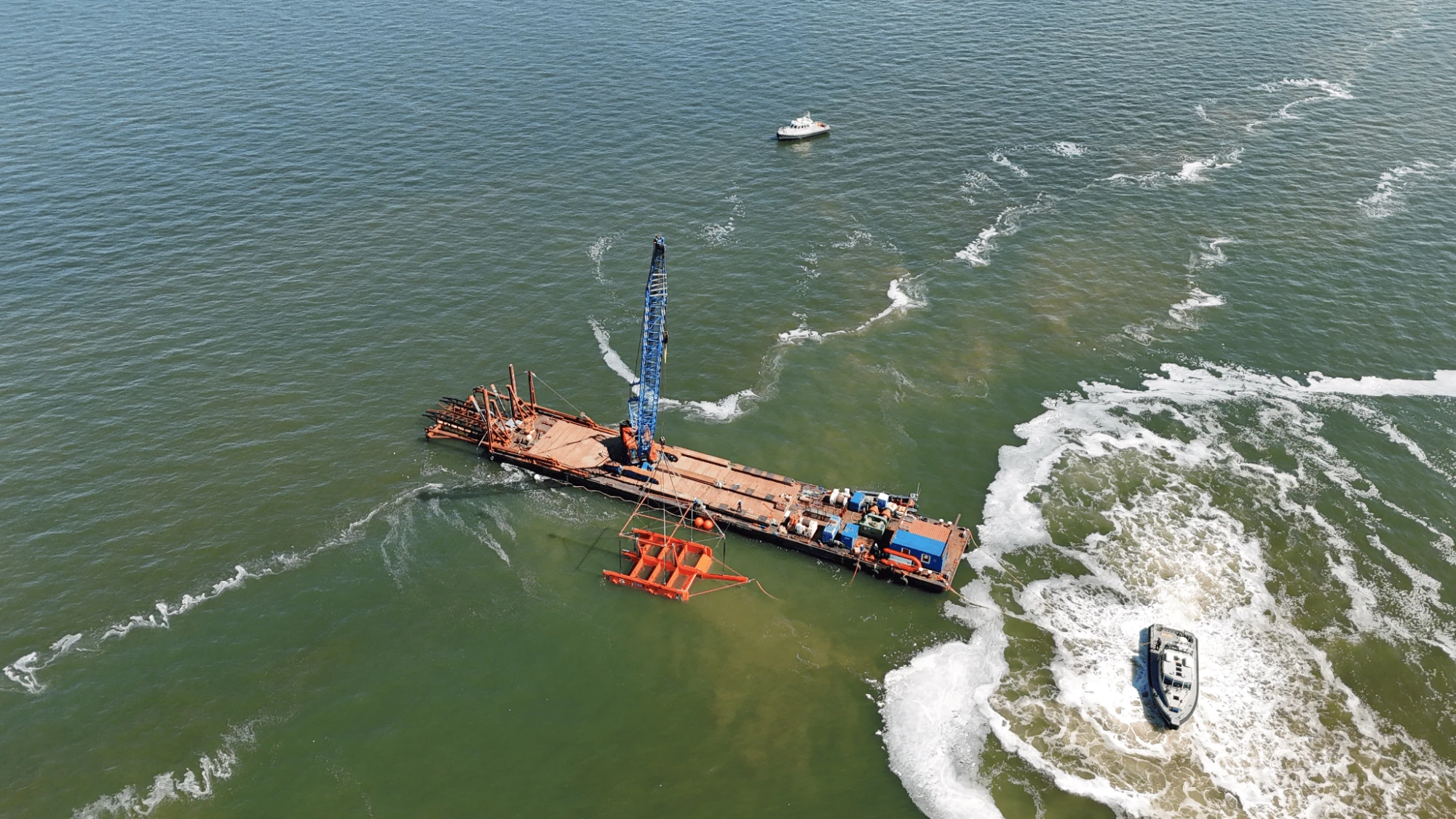Wadden Sea island could be first to benefit from tidal energy

Some 700 households in the Wadden island of Ameland may be getting their electricity from tidal energy by the end of this year if a trial off its coast is successful.
Companies in Friesland and Groningen have invested millions in several tidal energy projects, the first of which has entered its trial phase off the coast of the island.
Tidal energy company Seaqurrent has developed a tidal “kite” attached to a cable which in turn is linked to a generator. The movement of the kite, similar to that of a kite in the sky, generates power which is then transported from the generator onto the land.
The scheme fits in with Ameland’s plans to become CO2 neutral by 2035, 15 years ahead of the rest of the country. Many of the island’s inhabitants already have shares in the local solar park on the island. Wind farms are not an option because the turbines would spoil the island’s natural beauty, the local authorities have said.
Seaqurrent was also given a €2.5 million subsidy from the government-run sustainability fund Waddenfonds to bring the kite to market. The company hopes the trial will attract further investment in what the company hopes will become tidal kite parks in the future.
The best place for the parks would be the Waddenzee because of the strong tidal currents between the islands, the organisers said but much will depend on the kite’s impact on the environment.
“The Waddenzee is busy enough as it is and we don’t know what this will do to nature,” biologist Bart Beijloos told broadcaster NOS. If space is made for tidal energy then other, unsustainable activities would have to go, such as gas exploitation and fishing, he said.
The effect of the kite on marine life is part of the trial, Seaqurrent co-founder Maarten Berkhout said. “This area is home to seals and birds which are vulnerable and we will be able to see how our presence affects their behaviour and living environment,” he said.
Tidal energy is some 16 cents per kilowatt hour more expensive than solar or wind power, but, its adherents say, its supply is less dependent on the weather and therefore more constant.
Thank you for donating to DutchNews.nl.
We could not provide the Dutch News service, and keep it free of charge, without the generous support of our readers. Your donations allow us to report on issues you tell us matter, and provide you with a summary of the most important Dutch news each day.
Make a donation